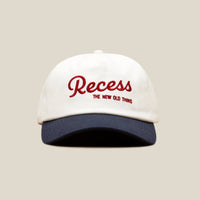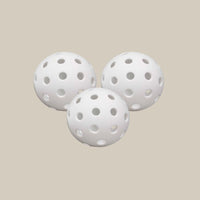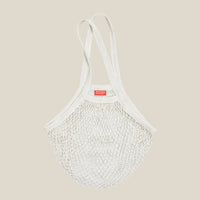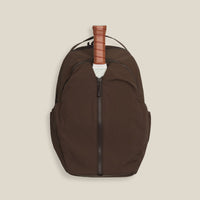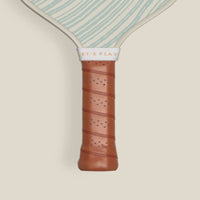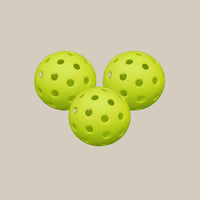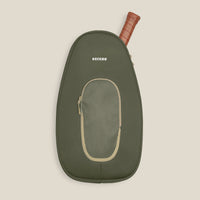When Was Pickleball Invented? History of Pickleball
If you've ever found yourself on a pickleball court, paddle in hand, wondering, "When was pickleball invented?" you're not alone. Pickleball's rapid rise in popularity has left many curious about its origins. Where did pickleball originate? Who invented pickleball? And, perhaps most intriguingly, why is it called pickleball? This guide will dive into the fascinating history of the game that has captivated so many players of all ages and skill levels.
The Birth of Pickleball: A Game Born Out of Necessity
When did pickleball start?
The story of pickleball begins in the summer of 1965 on Bainbridge Island, Washington, a small island located just a short ferry ride from Seattle. The game was invented by three dads—Joel Pritchard, a congressman, Bill Bell, a successful businessman, and Barney McCallum, an innovative entrepreneur—who were simply trying to entertain their bored children during the long summer days. These three men, with a dash of creativity and a bit of improvisation, laid the foundation for what would become one of the most beloved sports in the United States and beyond.
The initial idea was to set up a game of badminton, but as fate would have it, they couldn’t find a complete set of badminton equipment. Instead, they improvised with what they had—a perforated plastic ball, a net set at badminton height (later lowered to a more suitable level), and handmade paddles crafted from plywood. And thus, the first game of pickleball was born in the Pritchard family’s backyard. The game quickly became a hit, not just with the children but with the adults as well.
Where did pickleball originate?
Bainbridge Island was the cradle of pickleball, where the inventors and their families spent countless hours refining the game. The early days were marked by experimentation. The rules were fluid, and the equipment was rudimentary, but the joy the game brought was undeniable. As the game grew in popularity among family and friends, it became clear that pickleball was more than just a temporary backyard pastime; it was a game with the potential to reach far beyond the shores of Bainbridge Island.
Why Is It Called Pickleball?
One of the most frequently asked questions about the sport is, "Why is it called pickleball?" The origin of the name is as charming as it is debated. According to one popular story, the game was named after the Pritchard family's dog, Pickles. Pickles was known for his playful spirit and would often chase after the ball during games, prompting the family to dub the new game "pickleball." It’s a fun and lighthearted story that certainly fits the inclusive and playful nature of the sport.
However, there’s another version of the story that offers a different explanation. According to Joan Pritchard, Joel’s wife, the name “pickleball” actually comes from the term "pickle boat," which refers to the last boat to return with its catch in a rowing crew—often made up of oarsmen from various other boats. Similarly, pickleball was a mash-up of several different sports, borrowing elements from badminton, tennis, and table tennis. This story highlights the sport's humble beginnings and its patchwork nature.
Whichever version you prefer, the name "pickleball" has undoubtedly contributed to the sport's charm and appeal. It’s a name that’s easy to remember, a bit quirky, and completely unique—just like the game itself.
Who Invented Pickleball?
To answer the question "Who invented pickleball?" we must give credit to the collaborative efforts of Joel Pritchard, Bill Bell, and Barney McCallum. Each of these men played a pivotal role in shaping the game. Joel Pritchard, who was a sitting U.S. congressman at the time, had a knack for bringing people together, and his vision for the game was that it could be a social activity that encouraged family bonding and community interaction. Bill Bell, with his background in business, understood the importance of making the game simple and accessible to ensure it could be enjoyed by everyone, from children to adults.
Barney McCallum, the third co-inventor, was instrumental in formalizing the rules and promoting the game beyond their circle of friends and family. McCallum’s entrepreneurial spirit helped transform pickleball from a backyard novelty into a sport with a standardized set of rules and equipment. He was also one of the first to see the potential for pickleball to be more than just a pastime—it could be a competitive sport.
Together, these three men created a game that was easy to learn, inclusive, and, most importantly, fun. Their combined efforts ensured that pickleball was more than just a fleeting trend—it was a game that had the potential to endure and grow.
The Evolution of Pickleball
As we've established, the game took root in 1965. But how did it grow from a modest backyard activity to a major sport that people now enjoy worldwide?
In the early years, pickleball was primarily played in the Pacific Northwest, where the inventors resided. The game’s appeal spread quickly among friends and neighbors, who were drawn to its simplicity and the way it encouraged both casual play and spirited competition. As word spread, more and more people wanted to learn the game, leading to its expansion beyond Bainbridge Island.
The first major milestone in pickleball’s growth came in 1972, when the first permanent pickleball court was constructed in the backyard of Bob O’Brian, a neighbor of the Pritchards. This marked a significant shift from makeshift courts in driveways and backyards to dedicated spaces designed specifically for pickleball. With a proper court, the game’s rules and scoring began to solidify, and its popularity continued to rise.
By 1976, pickleball had grown to the point where the first known pickleball tournament was held in Tukwila, Washington. Although the tournament was small, it represented the beginning of pickleball as a competitive sport. The event was organized by David Lester, a high school tennis coach, who recognized the potential of pickleball to be more than just a recreational activity.
As more people were introduced to the game, the demand for standardized equipment grew. Early paddles were made from heavy plywood, which, while functional, were not ideal for serious play. Recognizing the need for better equipment, Barney McCallum began producing paddles that were lighter and more durable, made from new materials like composite and graphite. This innovation in equipment helped to elevate the game and attract more serious players.
Pickleball Today: A Global Phenomenon
Fast forward to today, and pickleball is one of the fastest-growing sports in the world. It’s played in over 70 countries and has an estimated 4.8 million players in the United States alone. The sport has found a home in schools, retirement communities, recreation centers, and even professional sports venues. It’s a game that appeals to people of all ages, from children learning their first sport to retirees staying active in their golden years.
Part of pickleball's appeal lies in its accessibility. The game is easy to learn, with simple rules and equipment that doesn’t require a significant investment. But while it’s easy to get started, pickleball also offers enough complexity to challenge even the most experienced athletes. Whether you're a casual player or a competitive athlete, there's a place for you in the world of pickleball.
Pickleball’s rise has also been fueled by its inclusivity. Unlike many sports that require specific skills or physical attributes, pickleball can be enjoyed by virtually anyone. The game can be adapted to suit different skill levels, making it a favorite in communities and families where participants may vary in age and ability.
The Role of Pickleball Paddles in the Game's Evolution
As pickleball grew in popularity, so did the innovation around its equipment, particularly the pickleball paddles. Early paddles were made of wood, which, while functional, were heavy and less responsive. Today, companies like Recess Pickleball offer a variety of high-quality paddles designed for players of all levels. These modern paddles are lighter, more durable, and come in a range of designs that allow players to express their personal style on the court. Whether you're just starting out, a more advanced player, or looking to have some fun and design your own paddle, the options available today are a far cry from the plywood paddles of the past.
Why Pickleball Is Here to Stay
So, why has pickleball endured for nearly six decades, and why does it continue to grow? The answer lies in its inclusivity, adaptability, and the simple joy it brings to those who play it. Pickleball is a game that anyone can play, regardless of age, experience, or fitness level. It’s a sport that fosters community, promotes physical activity, and, most importantly, is incredibly fun!
The history of pickleball is a testament to the power of simplicity. From its humble beginnings on a backyard court to its status as a global phenomenon, pickleball has proven that great things can come from the most unexpected places. The sport’s ability to bring people together, whether for friendly competition or just a casual game, is at the heart of its lasting appeal.
As we look to the future, it's exciting to think about how pickleball will continue to evolve. The sport has already made significant strides, with professional tournaments, international competitions, and a growing base of dedicated players. But at its core, pickleball remains a game that anyone can enjoy, whether you’re playing in a world-class arena or just in your driveway.
And if you’re in the market for some new gear, don't forget to check out our selection of Pickleball Paddles, and if you’re looking to learn more about the sport, check out our guide on What is Pickleball? Whether you're a seasoned player or just getting started, Recess Pickleball has the gear you need to play your best and look good doing it.



